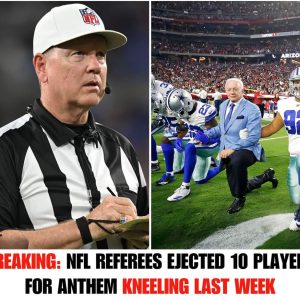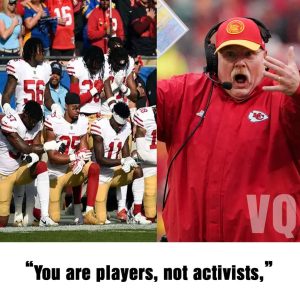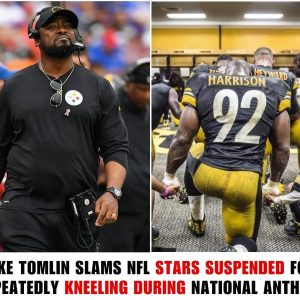In a dramatic development that has sent shockwaves through the NFL, former quarterback Colin Kaepernick has announced he will boycott the league for as long as Harrison Butker remains a player. Kaepernick’s unexpected declaration centers around his expressed dislike for Butker, the Kansas City Chiefs’ prominent kicker, and has sparked intense debate among fans, analysts, and athletes alike.
Colin Kaepernick, who has been vocal about social justice issues and protested against racial injustice during his NFL career, took to social media to reveal his latest stance. In a candid statement, Kaepernick shared his personal reasons for the boycott, stating, “I don’t like him,” referring to Butker. While Kaepernick did not elaborate further on the nature of his animosity towards the kicker, the announcement has ignited a flurry of speculation and discussion.
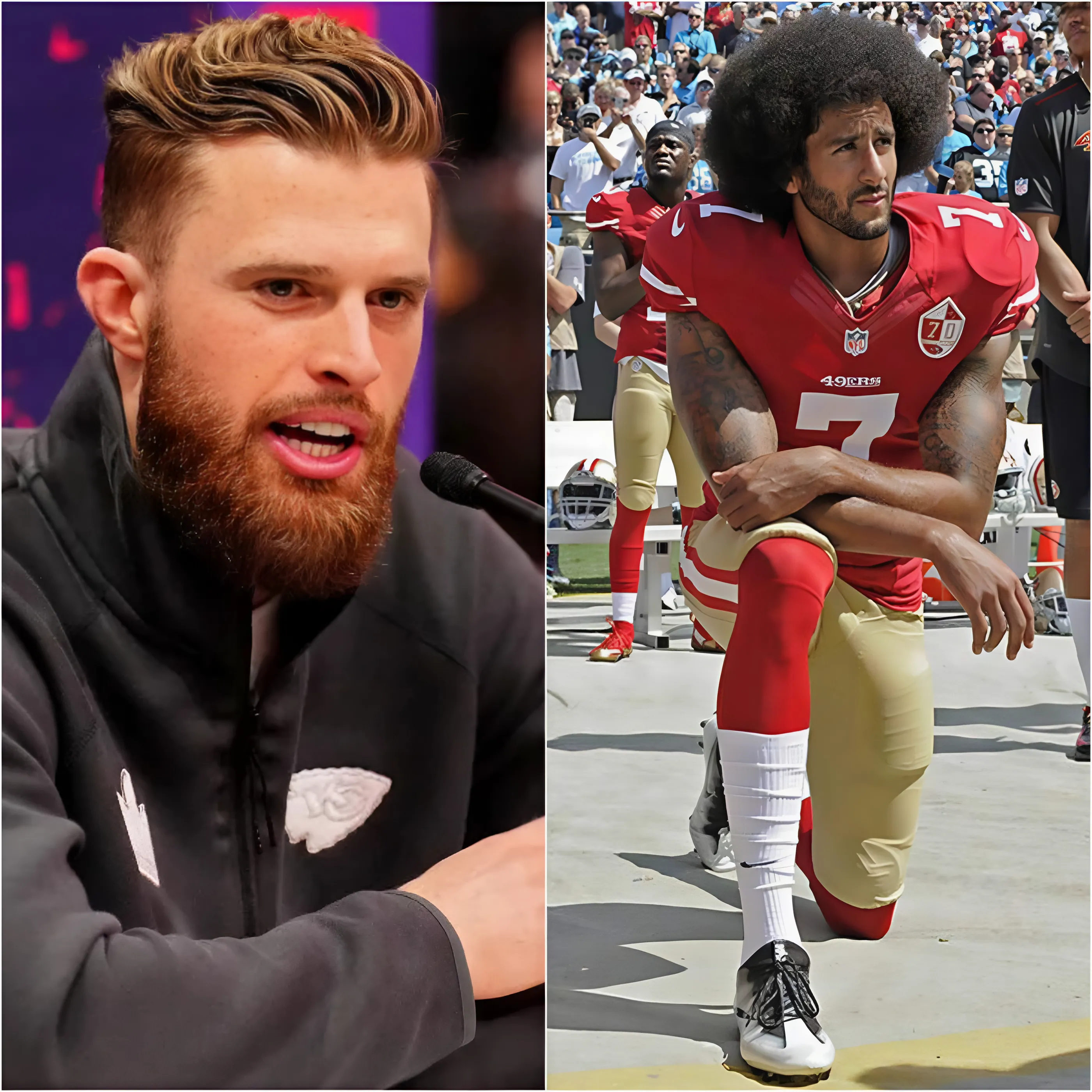
The boycott comes as a significant turn of events, given Kaepernick’s previous history of using his platform to advocate for social change. His decision to boycott the NFL over a personal dispute with a single player is seen as a departure from his earlier activism, raising questions about the motivations behind this move and its broader implications.
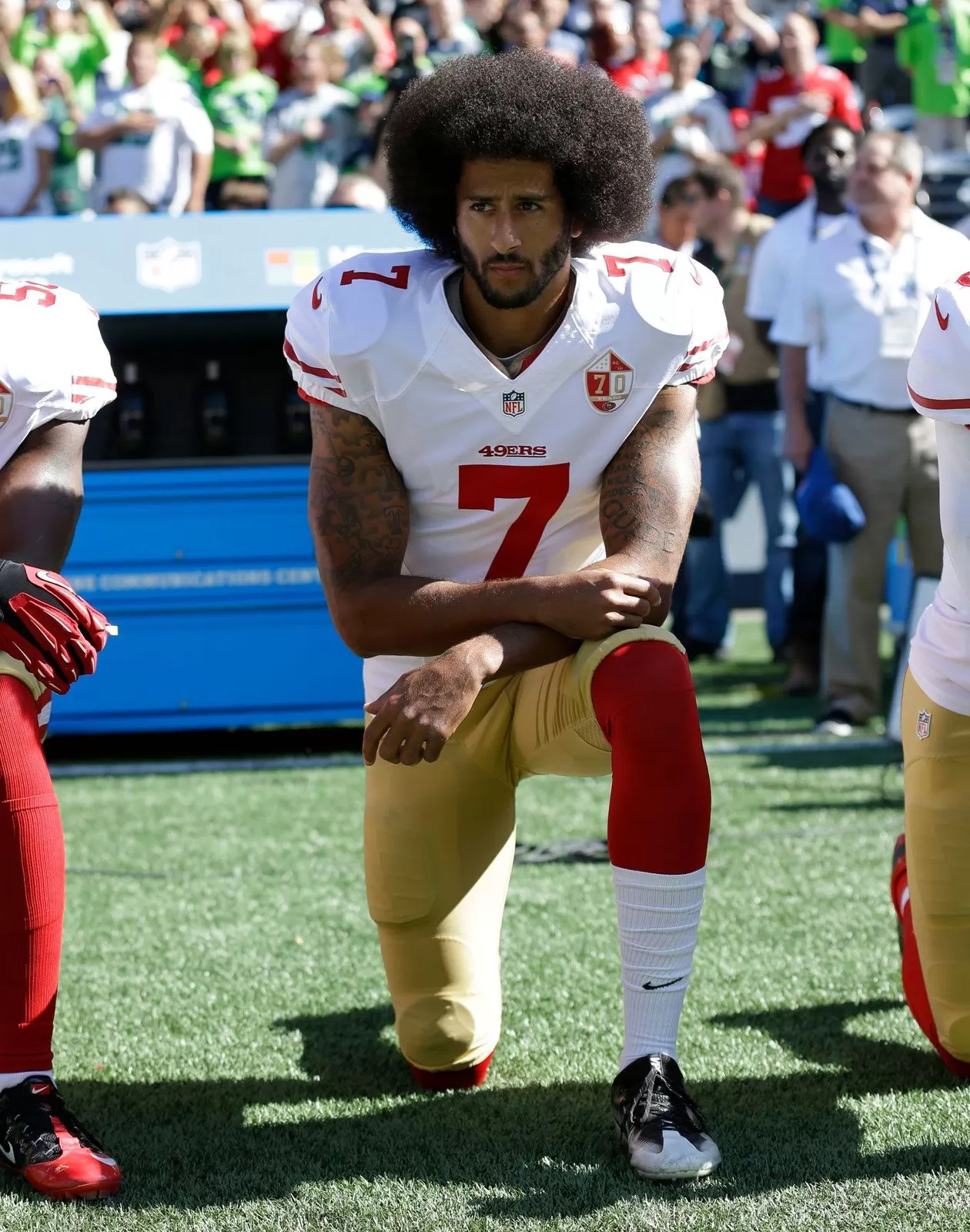
The NFL community has reacted with a mix of surprise and curiosity to Kaepernick’s announcement. Fans and sports commentators are debating whether this boycott will have any substantial impact on the league or if it is a symbolic gesture. Some supporters of Kaepernick view his stance as another form of protest, while critics argue that it detracts from the core issues he has previously championed.
Harrison Butker, who has been with the Kansas City Chiefs since 2017 and is known for his crucial field goals, has yet to publicly address Kaepernick’s comments. The kicker’s response, if any, will likely be closely watched by both the media and the public.
Kaepernick’s boycott raises important questions about the intersections of personal grievances and public activism. The NFL, as a major platform for athletes to voice their opinions and influence change, now faces the challenge of navigating the complex dynamics introduced by this latest controversy.
As the NFL season progresses, the league will need to address the potential fallout from Kaepernick’s boycott and its implications for player relations and fan engagement. Kaepernick’s move highlights the ongoing tensions between individual athlete concerns and broader institutional dynamics within professional sports.
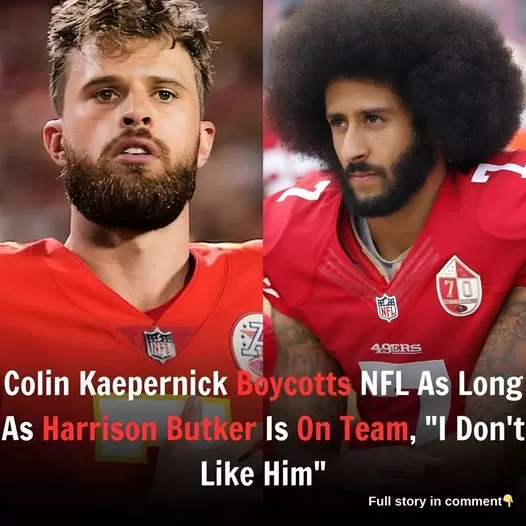
Colin Kaepernick’s decision to boycott the NFL over his personal dislike for Harrison Butker marks a significant and unexpected development in the world of sports. While the full impact of this boycott remains to be seen, it underscores the continuing complexities faced by athletes as they navigate personal and public conflicts. As the situation unfolds, both Kaepernick and the NFL will be under scrutiny from fans and observers eager to see how this latest controversy will shape the future of professional football.



